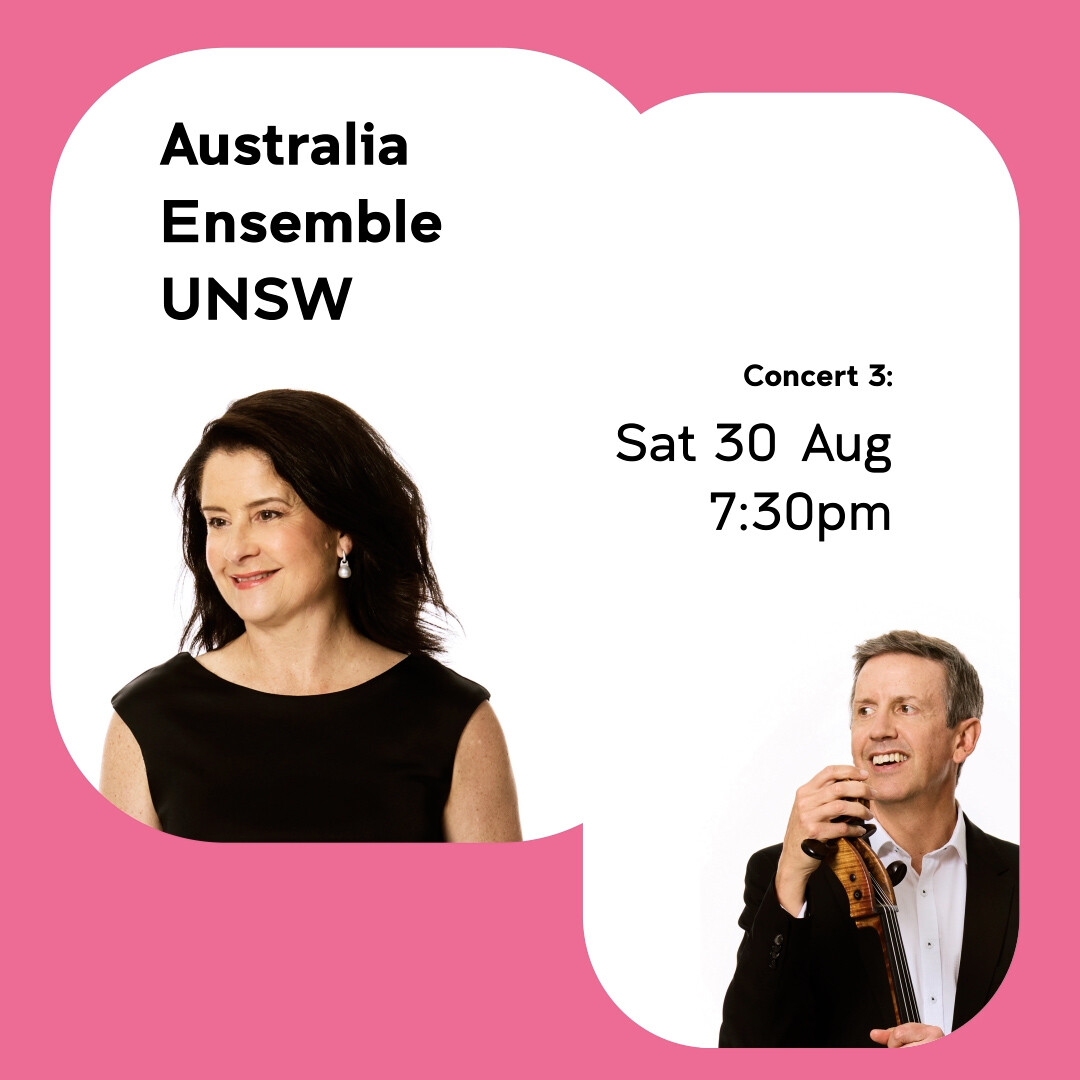
Australia Ensemble UNSW | Concert 3
30 August 2025 @ 7:30 pm - 9:30 pm AEST

In music from Russia, the US, Britain and here, composers reflect on the majesty and beauty of the natural world, while considering the joy and sadness of human experience.
GRENFELL Poems of a Bright Moon (2000)
FINZI Five Bagatelles (1942)
CRUMB Vox Balaenae (1971)
ARENSKY Piano Trio no. 1 Op. 32 (1894)
David Griffiths, clarinet; Dimity Hall, violin; Julian Smiles, cello; with guest artists Joshua Batty, flute; Beatrice Colombis, violin; Tobias Breider, viola and David Fung, piano
Anton Arensky’s death at 45 robbed Russian music of a great composer. In the dramatic contrasts and mastery of form in his Piano Trio of 1894, the music surges like tides, contrasting with passages of exquisite clarity and fleet-footed energy. At its heart is an elegy for a young cellist, whose instrument is allowed to sing its lament.
Gerald Finzi described his Bagatelles as mere trifles, yet they hum with gentle nostalgia, especially in this arrangement for clarinet quintet by Christian Alexander.
Eighth-century Chinese poet Li Po mourned human impermanence but created indelible images of mountains and rivers, clouds and the moon. Australian composer Maria Grenfell’s Poems of Bright Moon renders some of these images in music of lapidary clarity.
George Crumb turned to the larger rhythms of nature for his masterpiece Vox Balaenae, in which the songs of whales and sea birds against the endless roiling of the sea are by turns majestic and haunting.


